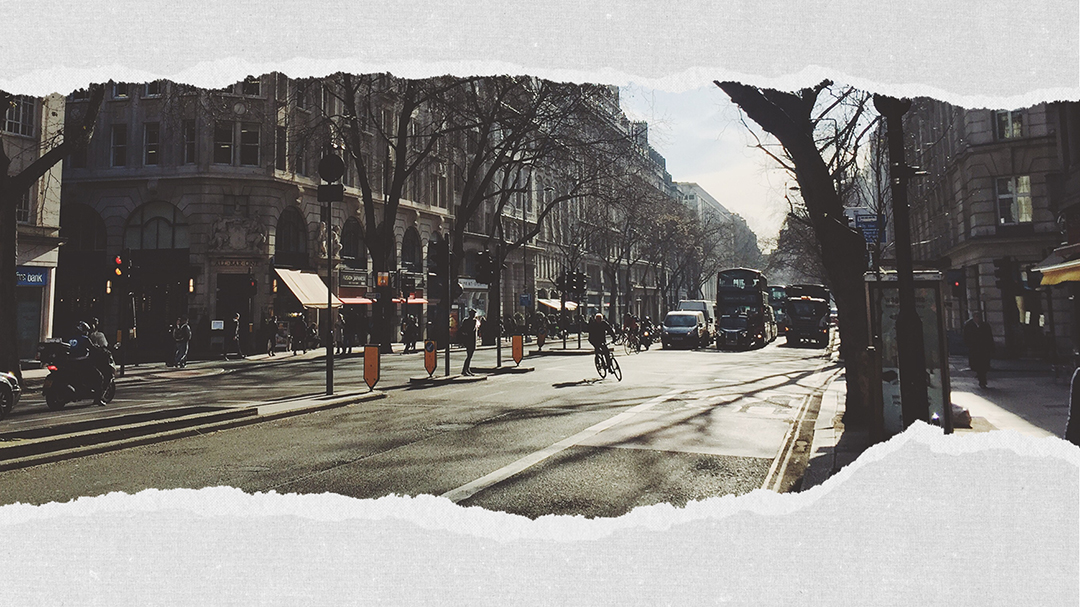David Fried and his team care for a tree nursery in Elmore, Vermont called Elmore Roots. For over 40 years, David has been growing fruit and nut varieties that were once believed impossible to grow in the hillsides of Vermont. Spanning over acres of land, there is a large variety of trees, berries, and nuts that they grow and harvest throughout the year.
Through this work of nurturing plants, David feels a oneness with God. He shares, "That's what I want people to experience when they come up here and when they grow their own fruit trees and nut trees and berries, that they're part of this oneness too."
Video Transcript
David Fried: [Reading Psalm 148 Hebrew]
The mountains and the hills, fruit-bearing trees and all cedars, young men as well as maidens, elders together with young lads, let them praise God.
Just outside Elmore, Vermont, sits a sprawling plant nursery. David Fried has been tending the trees here for over 40 years.
My mom, who died a few years ago, she was an artist and photographer, and so we have a little gallery of her work here. She was a traveler and a painter, so she painted and sculpted and was a photographer to help remind us all that the world is so beautiful. And of course, she taught me from a very early age.
I moved to Vermont and some of my friends moved here because we believed that we could do better than what we were seeing in the cities and the suburbs, and we wanted to live in a place where people are sensitive to what's around us, to the land, to the people, to the animals, to the plants. And when you work with plants, I get to see that they are like holy beings. Holy beings that grow and respond to the light and to the touch. They give us so much and we have to do very little.
So one of my main things we do here — we're not great growers. We just have to protect and protect the plants and not hurt them. And we have to live our lives and manage things in a gentle way so that everything around us, all the plants and animals and birds and even the insects, that there's millions of that we don't even know what they are and what they do. I want them all to thrive because they're all given to us here to work with in this unbelievable creation. And it's our job to take care of them so that the whole universe will thrive.
Anika: Let's see. This is largely a plum orchard. These are all our little baby maples. These look like red maples, aronias, and creeping buttercup. These are highbush cranberry babies. These look like gooseberries. So I've been here since 2020. And before that, I was working in nature education, wanted to switch fields, and now I just work with plants all day. I love that this is a place where we can eat raspberries and not worry too much about washing them off first. It is so hard to harvest berries and not eat them all at the same time. I think it's the hardest part.
Producer Josh: Do you have any personal rules for that? Because you got to be able to eat a couple, right?
Anika: Yes. What do you think? I bet you I eat a couple berries every two minutes. What is that? That's two in a minute there. So now I got to wait a little while. Easy. And like the occasional handful.
David: Colin!
Colin: Hey.
David: Welcome.
Colin: Good morning. Good. What are we doing today?
David: Oh, I was thinking of sending you out into the black walnuts. We have black walnuts are the last plants to plant from the cold storage, and I was thinking of letting you select some areas. I have some areas in mind.
We keep them dormant as long as possible. See, they're just sprouting their leaves now. They were inside their buds and then all of a sudden they opened. It's like one of the amazing miracles of life is how leaves and branches and flowers and fruits are all somehow inside a bud, inside a stem. How is it possible that what looks like a dead stick, a lifeless stick, comes to life every single springtime? So we keep them in our cold storage to keep them from sprouting because you can move them around before they sprout and after they sprout, they have to really be in the ground. That's why Colin's going to plant them out today.
The roots can't support leaves and nuts and fruit unless they're well rooted in the ground just like we can't support our lives or our children's or crew or our friends or our neighbors, unless we're balanced people that are well rooted in the ground too. We have a lot more in common with the plant kingdom than we think about usually.
Colin: What do you think? Does this look like a good place for a tree to stand?
Just pulling out these big rocks. A nice little root system we got here. It's got a little dangly one. So we'll kind of see, “Hey, tree, do you like this home over here? What more do you need?” I'm doing a lot of transplanting working here, planting a tree from one place to another. I grew up in Connecticut, and then I kind of got transplanted into Vermont. I kind of see myself as similar to a lot of these trees. I think I've definitely learned patience. Mother nature likes to bring about death in order to fertilize life, but we want to try to learn from her so that we can help co-create with God's vision because we humans are also creators — created and creators.
David: Then we have a little pond up here. There's a tradition that every leaf that is released from the tree as it flutters to the ground, that even that is a touch from our Creator. You see the little snail hanging in right here?
(Talking to crew) Okay, let's have some lunch. Mud five. That's what we call, high mud five.
Anika: Ready?
David: Yeah.
(Washing hands with Colin) Thank you for reminding me…It’s always good when you, the wildest reminds me — you, the wildest reminds me of to stay clean. It's good.
Colin: Yeah. It's interesting. Probably black walnuts can just live for a really, really, really long time.
David: You're going to meet us Colin, right?
Sara: Hello.
David: Wow. Look at this little feast.
Anika: Yeah, as always.
David: Pressed in the fall, but perfectly ready in the summer.
(Sprinkler waters plants in nursery)
Sara: I really like planting, and I really like potting and anything that my hands are getting dirty. And so he gives me a lot of those sorts of tasks.
Oh, there we go. Some cherries up there. Want one?
Producer Josh: Yeah. Thank you.
Sara: Six months ago I was living in Brooklyn, and I talk to my friends now and they're like, “Oh, how's your life?” And I just get to be like, “Well, I work on a farm and I eat berries all day.” That’s pretty idyllic. I don't know. People who live in the city have, I don't know. I don't want to be judgmental because I used to be one of them and I used to live there and really want to live there for a long time. But I think living in a sort of place like that kind of just makes you think that that's the best there is. And people aren't really interested in leaving that world because it's so exciting and so vibrant and so fast-paced, they're like what could be better than this? And slowing down, I think to a lot of my friends from the city is kind of just almost inconceivable. If they slow down, they don't know what's going to happen. But I feel like I've been very lucky to have an opportunity to slow down and be with the woods more.
David: We're all cooperating together. How do we get this across to the world? We make films. We teach the people around us. We show that we're here as caretakers for the world and the world is caretaking for us.
Whether it's under the ground, in the sky, in the tree, in the water, things are working together. We need to know that that's how the world works.
We say God is one. What does that mean? It means — I have no idea. But once in a while I have a taste that I'm part of this oneness too, and that's when I feel my best. And that's what I want people to experience when they come up here and when they grow their own fruit trees and nut trees and berries, that they're part of this oneness too.
Sticks like one, and then you have to pull it apart kind of gently. And this is how Velcro was invented.





















